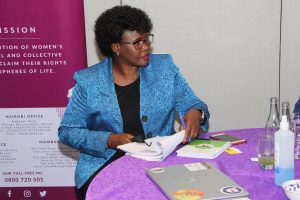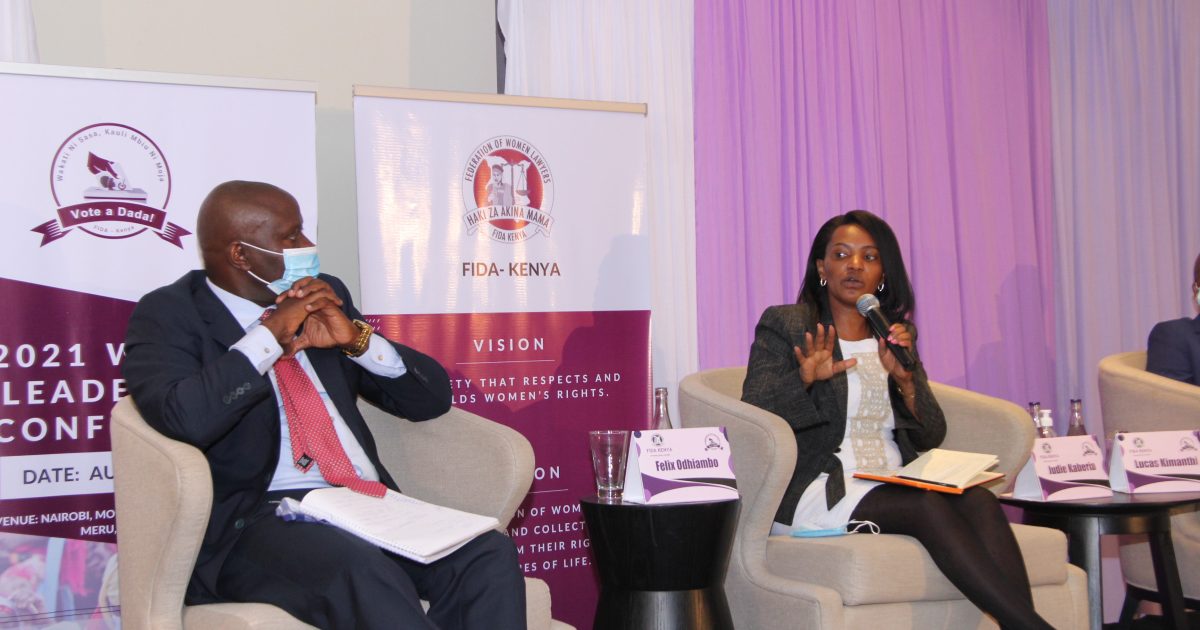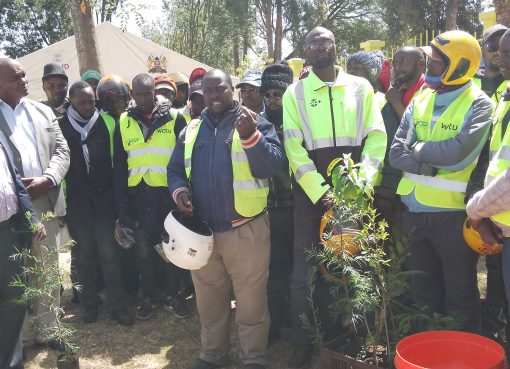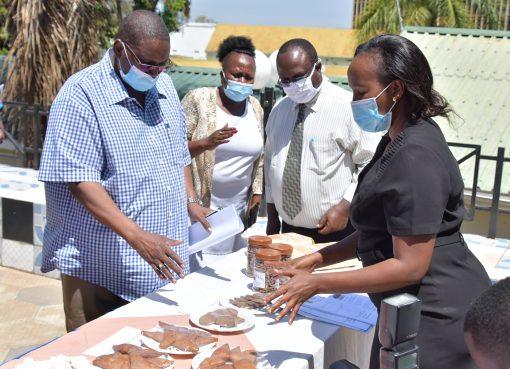Federation of Women Lawyers (FIDA) in Kenya has launched campaign initiative to promote participation of women in the National and County level of political leadership.
The campaign christened “#VoteADada” backed by Kenyan Women Parliamentary Association (KEWOPA), Diakonia Kenya, Embassy of Switzerland to Kenya and Womankind Worldwide is geared towards initiating dialogue towards achieving the Constitutional minimum of two-thirds in elective and appointive positions.
Speaking in Nairobi during the 2021 Women Leadership Conference, FIDA Chairperson Nancy Ikinu said that the push to initiate the campaign was bolstered by the realization that women’s participation in decision-making at all levels was vital.
”Women and men have the right to equal treatment, including the rights to equal opportunities in the political, economic, cultural, and social spheres. Therefore, empowering one woman into politics translates to the empowerment of all women,” she stated.
Ikinu said that the attempts to ensure that the country implements the constitutional provisions had failed four times hence the need to seek a way forward.
Amnesty International Executive Director, Irungu Houghton said that in order to achieve the consistently minimum of two-thirds in elective and appointive positions, the office of the registrar of political parties should enforce gender and inclusion provisions in the constitution by fully implementing the Political Parties Act.
“Political parties should prioritize the selection and nomination of women in winnable elective positions beginning with ward level seats and fairly allocate party nomination certificates to achieve the two-thirds gender rule,” he said.
Houghton further urged the National Police Service to provide security to women political aspirants during the campaign and elections period.
“Civil Society Organizations should be vigilant and alert in documenting any electoral malpractices and illegalities that might present themselves during the campaign and at elections for increased accountability for the whole electoral system,” urged Houghton.

In her address, Independent Electoral and Boundaries Commission (IEBC) Voter Education and Partnerships Director, Joyce Ekuam said that the Commission has put in place mechanisms that will ensure all candidates especially women participate with ease in tendering their candidature and acting as voters in the upcoming 2022 general elections.
Highlighting the sanctions on Gender-Based Violence (GBV), Ekuam said that IEBC has noted an increase in stages of violence and insecurity faced by the election candidates, particularly on women that come around the electioneering period.
She further added that IEBC is keen on reinforcing Electoral code of conduct during the campaign period to ensure that the elements that disturb the peace of the nation are dealt with.
“The Commission is positioning itself on what to do when violence happens. There is a continuous touchdown with investigative and prosecution institutions concerning Electoral related violence incidents,” Ekuam added.
She said that the commission in collaboration with security organizations, has come up with an Electoral Risk Mapping Tool and has set up a code of conduct enforcement committee that will identify and penalize political parties that encourage Electoral malpractices and violence.
“The commission has also established Women Situation Groups that will help in cracking down matters GBV,” stated Ekuam.
Giving his remarks, Electoral Law and Governance Institute for Africa (ELGIA) Executive Director, Felix Odhiambo expressed that there is an urgency in addressing questions on election management and administration.
Odhiambo said that there is a need to have a conversation among stakeholders on the kind of technology that will be used in 2022 as it will contribute towards securing a credible election process
“Technology seems to be regarded by the electoral commission as necessary to enhance efficiency and speed and has nothing to do with transparency and accountability,” he explained.
Association of Media Women in Kenya (AMWIK) Executive Director, Judie Kaberia said that the media, as part of civil society teams that ensure elections accountability, is keen on reviewing elections reporting guidelines and equipping journalists with gender-sensitive reporting tools.
Kaberia further noted that there is a need to train female political aspirants on engaging with the media effectively, as it will boost their confidence and create a platform to articulate their manifestos.
“Female aspirants should show up for interviews as the media is keen on ensuring fair and gender-sensitive coverage of women politicians and political aspirants by upholding the democratic and ethical principles of accountability, fairness, and objectivity,” stated Kaberia.
She requested media be allowed to transmit and play a part in results transmission without manipulation from any stakeholders.
By Moffin Opilio and Grace Brightus





